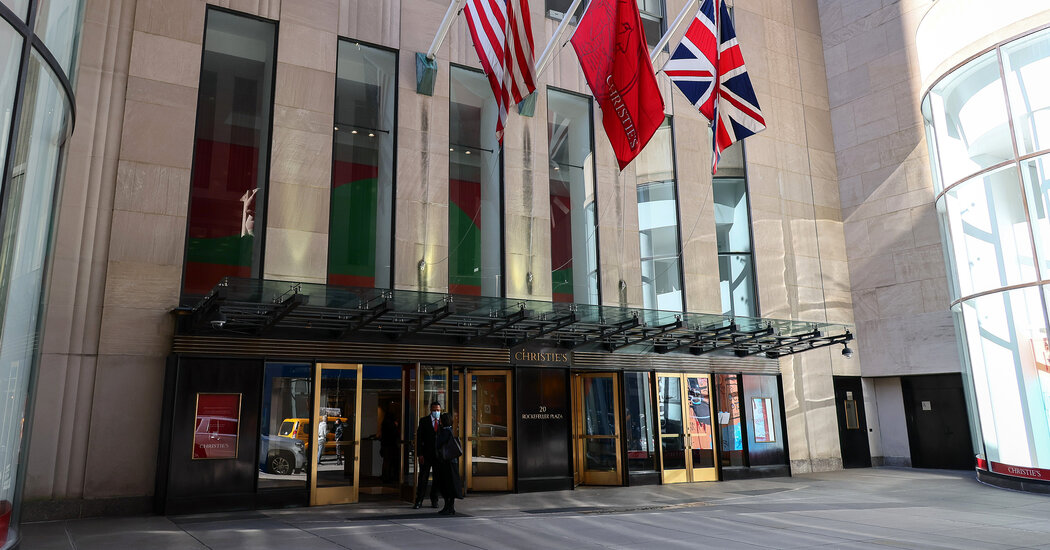The auctioneer’s website was taken offline on Thursday evening and remained down on Friday, days before its spring auctions were set to begin.
Days before Christie’s expected to sell as much as $840 million worth of art at an auction set to include paintings by Warhol and Basquiat, the auction house experienced what it described as a “technology security issue” that took its website offline.
Some collectors and art advisers noticed the problem on Thursday evening. By the next morning, the website was redirecting visitors to a temporary page outside of its own web domain. “We apologize that our website is currently offline,” it said. “We are working to resolve this as soon as possible and regret any convenience.”
Edward Lewine, a Christie’s spokesman, said that a security issue had affected some of the company’s systems, including its website.
“We are taking all necessary steps to manage this matter, with the engagement of a team of additional technology experts,” he said in a statement. “We will provide further updates to our clients as appropriate.”
The art world has faced an increasing number of cyberattacks in recent years. In January, a service provider that helped museums host their collections online and manage internal documents was targeted by hackers. Organizations including the Metropolitan Opera and the Philadelphia Orchestra have faced cyberattacks that hampered their ability to sell tickets online.
“It is difficult for companies to get ahead of cybercrimes because the attacks keep evolving,” said Chelsea Binns, a cybercrime expert who teaches at the John Jay College of Criminal Justice in Manhattan.
Binns said it was best practice for companies to notify the public as soon as possible if hackers might have gained access to sensitive information.
The art market is an industry that runs on discretion because its clientele are oftentimes world leaders and powerful businessmen.
“Because of the nature of the clientele and the numbers involved, I would expect better than best practices,” the art adviser Todd Levin said.
Levin said the cyberattack was happening during a crucial moment before the spring sales when potential buyers are confirming their interests in artworks expected to sell for tens of millions of dollars. He said he would not be thrilled right now if he were a seller. “How can potential bidders access the catalog?” Levin asked.
